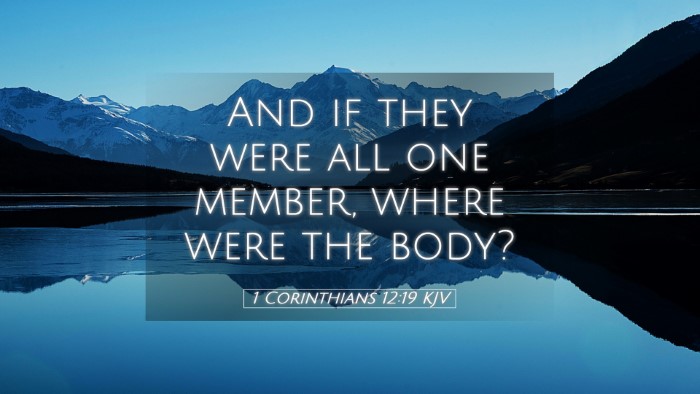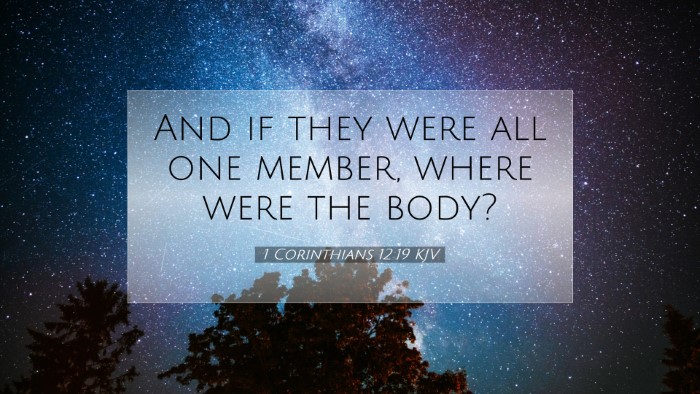Old Testament
Genesis Exodus Leviticus Numbers Deuteronomy Joshua Judges Ruth 1 Samuel 2 Samuel 1 Kings 2 Kings 1 Chronicles 2 Chronicles Ezra Nehemiah Esther Job Psalms Proverbs Ecclesiastes Song of Solomon Isaiah Jeremiah Lamentations Ezekiel Daniel Hosea Joel Amos Obadiah Jonah Micah Nahum Habakkuk Zephaniah Haggai Zechariah MalachiVerse
1 Corinthians 12:1 1 Corinthians 12:2 1 Corinthians 12:3 1 Corinthians 12:4 1 Corinthians 12:5 1 Corinthians 12:6 1 Corinthians 12:7 1 Corinthians 12:8 1 Corinthians 12:9 1 Corinthians 12:10 1 Corinthians 12:11 1 Corinthians 12:12 1 Corinthians 12:13 1 Corinthians 12:14 1 Corinthians 12:15 1 Corinthians 12:16 1 Corinthians 12:17 1 Corinthians 12:18 1 Corinthians 12:19 1 Corinthians 12:20 1 Corinthians 12:21 1 Corinthians 12:22 1 Corinthians 12:23 1 Corinthians 12:24 1 Corinthians 12:25 1 Corinthians 12:26 1 Corinthians 12:27 1 Corinthians 12:28 1 Corinthians 12:29 1 Corinthians 12:30 1 Corinthians 12:31

